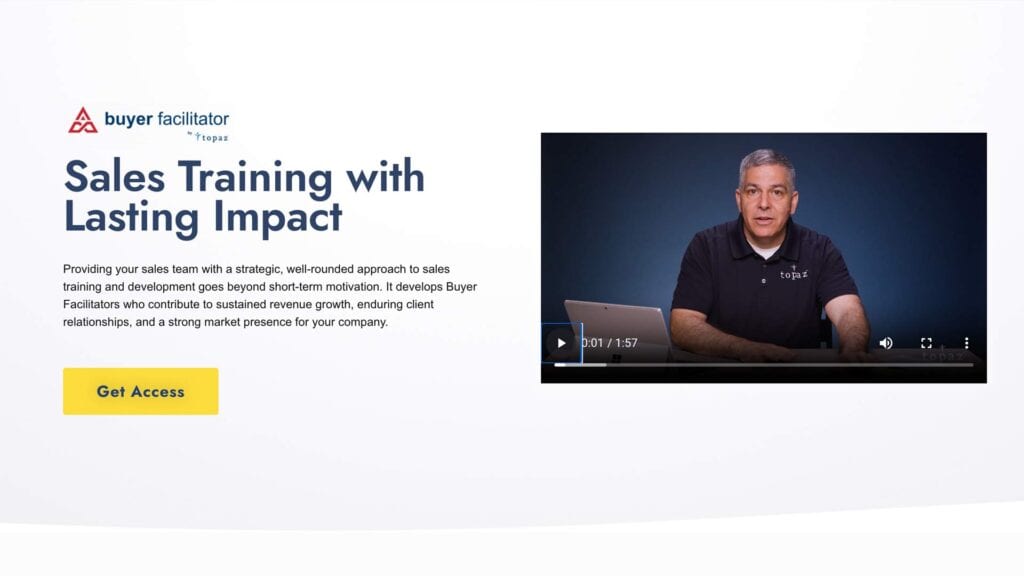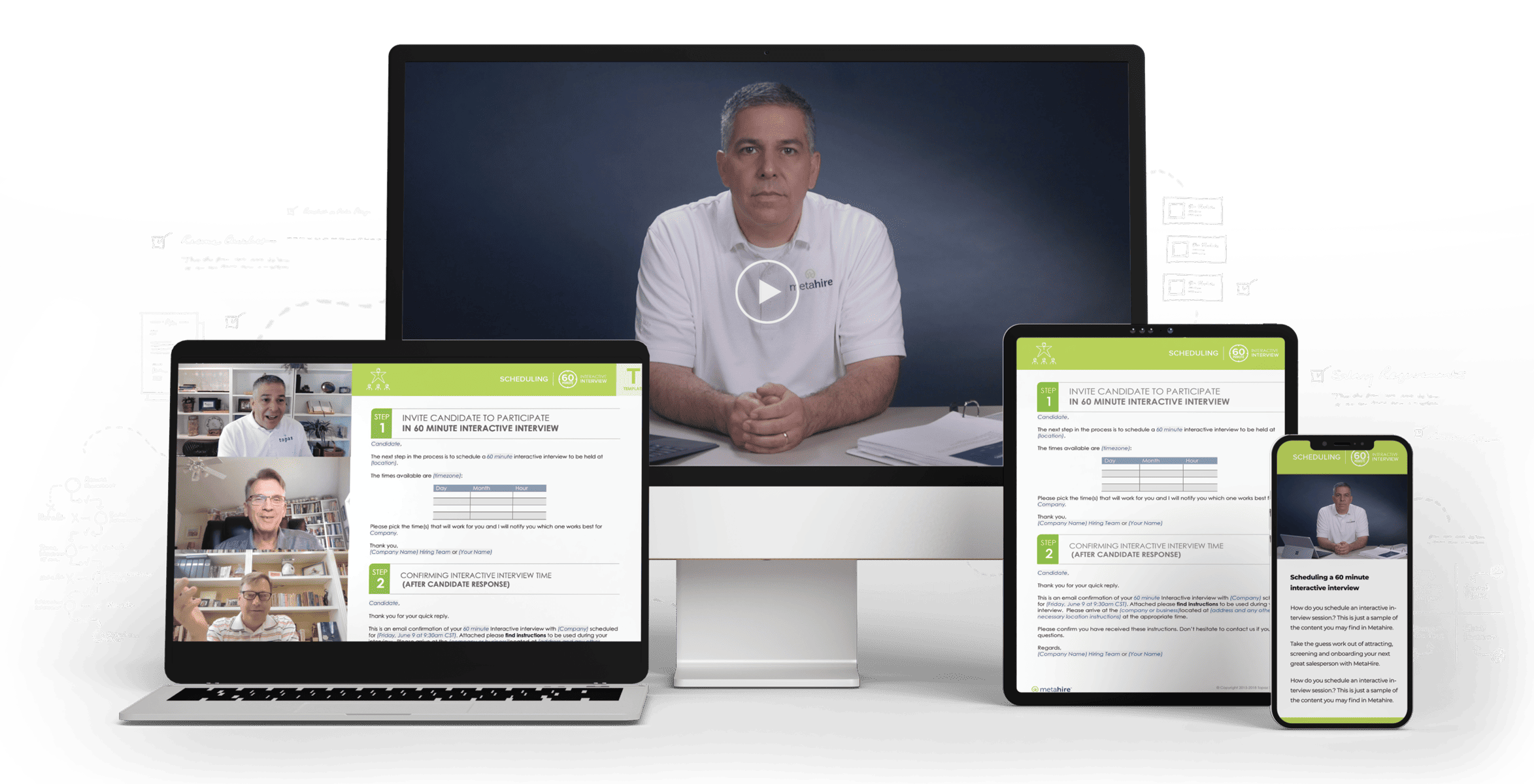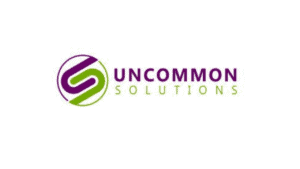People buy from people they trust. But let’s face it, trust is hard to build, especially with buyers often skeptical and wary of salespeople and their intentions.
A subtle yet highly effective strategy often goes unnoticed. It’s not about showcasing your product relentlessly, outdoing competitors, making grandiose promises, or offering discounts. The key to genuine credibility lies in the art of asking thoughtful questions.
A common misconception is that salespeople need to be great talkers. However, the most successful salespeople are expert listeners rather than expert talkers.
So why is asking questions so powerful? Let’s dive in.
Want more sales hiring and sales training content like this? Check out our other blog posts.
Be a Buyer Facilitator, Not Just a Traditional Salesperson
Think about it from the customer’s perspective. If you’re considering buying a product or signing up for a service, wouldn’t you be more likely to do business with someone who took the time to understand your needs and figure out how their offering could address them? Or would you rather do business with someone who just talked at you non-stop about how great their product is without understanding how you could benefit?
Asking thoughtful questions shows that you’re interested in solving the customer’s problems and gives you invaluable insights that you can use to help them find a solution.
For example, let’s say you’re selling financial software to small businesses. By asking thoughtful questions about past tax seasons, typical billing methods, if they ever have payroll problems, etc., you might discover that the potential customer is using an outdated accounting system, causing them many headaches. Without explaining or educating about your products or services, you can uncover pain points and challenges by asking thoughtful questions. Then, you can position your products or services as a solution to those headaches.
On the other hand, if you don’t take the time to ask questions and simply start talking about your product, you run the risk of coming across as pushy and self-centered or, worse, not uncovering their pain. That’s not going to help you build credibility or close any deals whatsoever.
Here at Topaz Sales Consulting, we look at sales differently than most consultancies. Instead of training our clients on traditional selling methods, we focus on becoming a Buyer Facilitator. This involves teaching folks to get to know their clients and their businesses inside and out to determine their needs and how their services or products can address them. Only then do we encourage our clients to start talking about what they do. We firmly believe that this is the best way to build credibility as a salesperson, and it’s also the best way to grow your book of business and close more deals.

Tips for Asking the Right Types of Questions
So, now you know that the best way to build credibility as a salesperson is by asking thoughtful questions. But how do you go about doing that? Here are a few tips:
1. Take the time to get to know your potential customers. First, get to know more about them personally. Then, find out what their business is all about, what their goals are, and what challenges they’re facing. The more you know and develop a trusting relationship, the better equipped you’ll be to ask the right questions as you progress through the sales process.
2. Ask open-ended questions that allow customers to elaborate on their answers rather than yes/no questions. This will give you more insights into their needs and how your product or service can address them. Yes/no questions rarely add contextual value to the conversation, so for the most part, you’ll want to avoid them.
3. Avoid leading questions that prompt the customer. This type of question puts the customer on the defensive and doesn’t allow them to express their needs freely. For example, a leading question might be, “So, your current accounting software is causing you many problems, huh?” This question doesn’t permit the customer to elaborate on their challenges, and it sounds like you’re trying to sell them your product before they’ve even had a chance to express their needs.
4. Be prepared to listen more than you talk. Let the customer do most of the talking and only chime in when it’s necessary to clarify something or ask another question to keep the conversation moving forward. We have one mouth and two ears for a reason.
5. Don’t try to sell them on your product or service right away. Let them know you’re there to help them figure out what they need and how your product or service can address those needs. If you do it right, they’ll be the ones who come to you asking for more information about what you have to offer.
The next time you’re working on building credibility with a potential customer, remember that asking thoughtful questions is always more effective than talking about yourself non-stop. Not only will this show that you’re interested in solving their problems, but it will also give you valuable insights into discovering whether you and your prospect are a good mutual fit.
A Buyer Facilitator’s Guiding Principles
As a Buyer Facilitator, a few guiding principles govern everything you do throughout a sales process:
- Empathy: Put yourself in the customer’s shoes and try to understand their needs, challenges, and goals.
- Curiosity and interest: Be genuinely curious about your customers and their businesses. The more you know, the better equipped you’ll be to help them find a solution.
- Active listening: Listen attentively to what the customer says and ask clarifying questions. Don’t make assumptions or jump to conclusions.
- Collaboration: Work with the customer to find a solution that meets their needs and fits their goals. Avoid a “me vs. them” mentality to build trust and credibility.
- Empowering beliefs: Eliminate negative self-talk and replace limiting beliefs with empowering beliefs. Believe that you are capable of helping your customers and that your product or service can genuinely make a difference for them.
By following these guiding principles and applying the tips mentioned earlier, you’ll be well on your way to becoming a successful buyer facilitator and building strong relationships with your potential customers.

Don’t Wait. Become a Buyer Facilitator Today!
Top-performing salespeople create long-term, long-lasting relationships with their clients using a proven process of thoughtful and consistent buyer facilitation, starting with asking solid questions. So don’t be afraid to ask away!
If you want to learn more about how your team of salespeople can become true Buyer Facilitators, contact us today.







